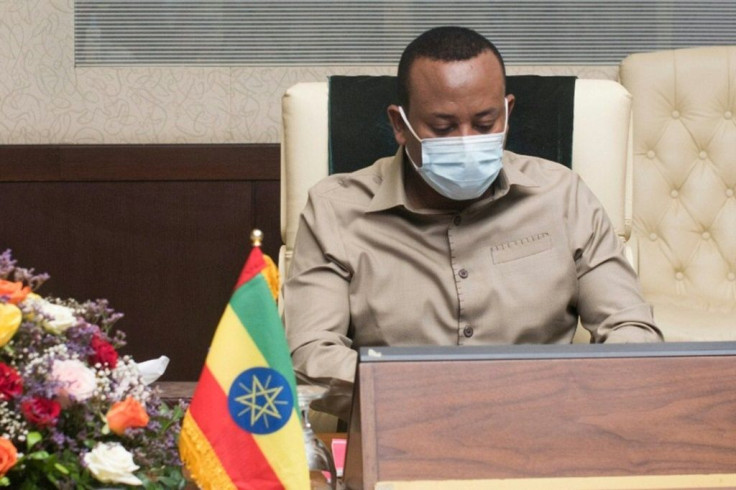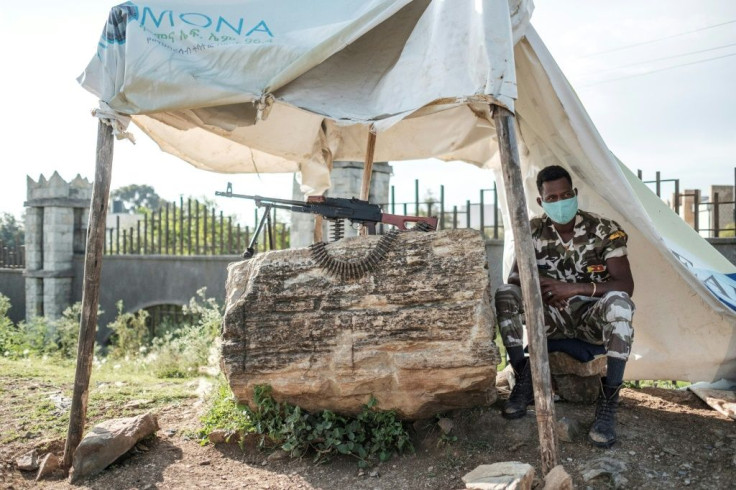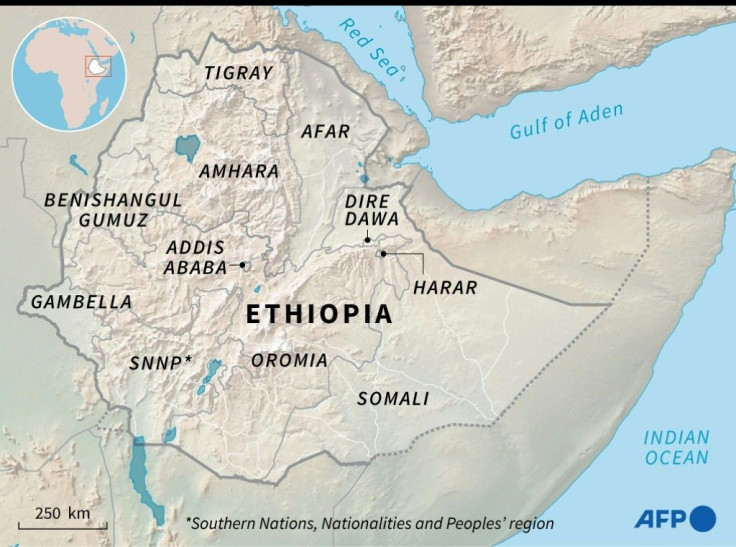Ethiopia PM Orders Riposte After 'Attack' On Army Camp In Restive Tigray
Ethiopian Prime Minister Abiy Ahmed on Wednesday announced he had ordered a military operation in the country's northern Tigray region, saying it came in response to a deadly attack on a federal army camp by the local ruling party.
The move marked a dramatic escalation in a protracted feud that analysts warn could lead to a devastating conflict in Africa's second most populous country.
The government also declared a six-month state of emergency Wednesday in Tigray, where internet and phone connections were down.
Abiy, last year's Nobel Peace Prize laureate, announced early Wednesday on social media that the Tigray People's Liberation Front (TPLF), the regional ruling party, had "attacked a military camp in the region" and "tried to loot" military assets.
The attack resulted in "many martyrs, injuries and property damage", Abiy said later in a five-minute address on state television, without providing a precise casualty total or specifying where the camp was.

"Our defence forces... have been ordered to carry out their mission to save the country. The final point of the red line has been crossed. Force is being used as the last measure to save the people and the country," he said in the earlier post on Facebook and Twitter.
It was not immediately clear what form the federal military response might take, or what the state of emergency declaration will entail.
At a press conference Wednesday afternoon, Redwan Hussein, spokesman for a crisis committee formed in response to the hostilities, said the government wanted to "liberate" Tigrayans from the "gang of TPLF".
But Redwan did not give a firm timeline for the operation, nor did he say whether it involved detaining Tigray's leaders.
"This war is the worst possible outcome of the tensions that have been brewing," said William Davison of the International Crisis Group (ICG).

"Given Tigray's relatively strong security position, the conflict may well be protracted and disastrous," he said, warning of potential "shockwaves" for the wider Horn of Africa.
Appearing again on state television Wednesday night, Abiy painted a rosy picture of the fighting so far, saying he wished "to confirm that on all fronts we were successful in foiling the enemy's desires and plans".
He said at least some members of the Tigrayan security forces had "tried to defect", and he praised security forces from neighbouring Amhara region for doing "an admirable job" in securing control over "key areas" along the two regions' shared border.
Tigray's government, for its part, said on regional state media that leadership and rank-and-file soldiers from the military's Northern Command, based in Mekele, "have decided to stand with the Tigray people and the regional government" -- a claim Abiy's office dismissed as "not true".

The statement also said Tigray had closed its airspace.
It was impossible to independently verify the two sides' claims.
UN Secretary-General Antonio Guterres "expresses his alarm over the reported armed clashes in the Tigray region of Ethiopia and calls for immediate measures to de-escalate tensions and ensure a peaceful resolution to the dispute," said spokesman Stephane Dujarric.
The US embassy in Addis Ababa urged "an immediate de-escalation of the current situation in Tigray and a measured response from both sides."
The TPLF dominated politics in Ethiopia for nearly three decades before Abiy came to power in 2018 on the strength of anti-government protests.
Under Abiy, Tigrayan leaders have complained of being unfairly targeted in corruption prosecutions, removed from top positions and broadly scapegoated for the country's woes.
Ethiopia was due to hold national elections in August, but the country's poll body ruled in March that all voting would need to be postponed because of the coronavirus pandemic.
Lawmakers then voted to extend officials' mandates -- which would have expired in early October -- but Tigrayan leaders rejected this and went ahead with regional elections in September that Abiy's government deemed illegal.
Now each side sees the other as illegitimate, and federal lawmakers have ruled Abiy's government should cut off contact with -- and funding to -- Tigray's leadership.
Tensions have also recently risen over who controls federal military assets in Tigray.
Tigrayan officials have said in recent days they would not initiate a military conflict.
On Tuesday night, Wondimu Asamnew, another senior Tigrayan official, told AFP the federal government was massing troops on Tigray's southern border -- a claim that could not be independently verified.
"What they are doing is playing with fire," Wondimu said. "A small spark can ignite the whole region."
© Copyright AFP 2024. All rights reserved.





















